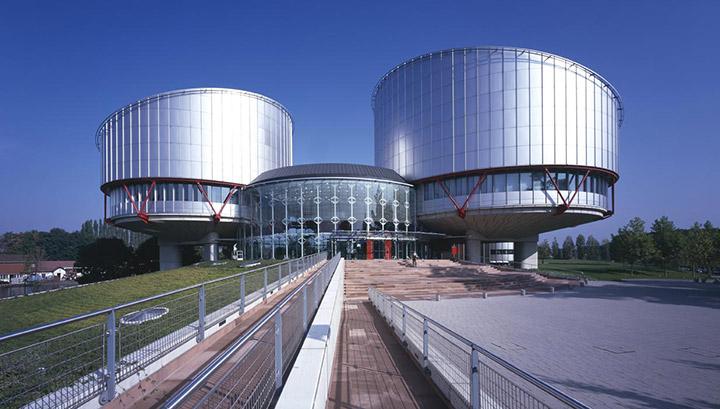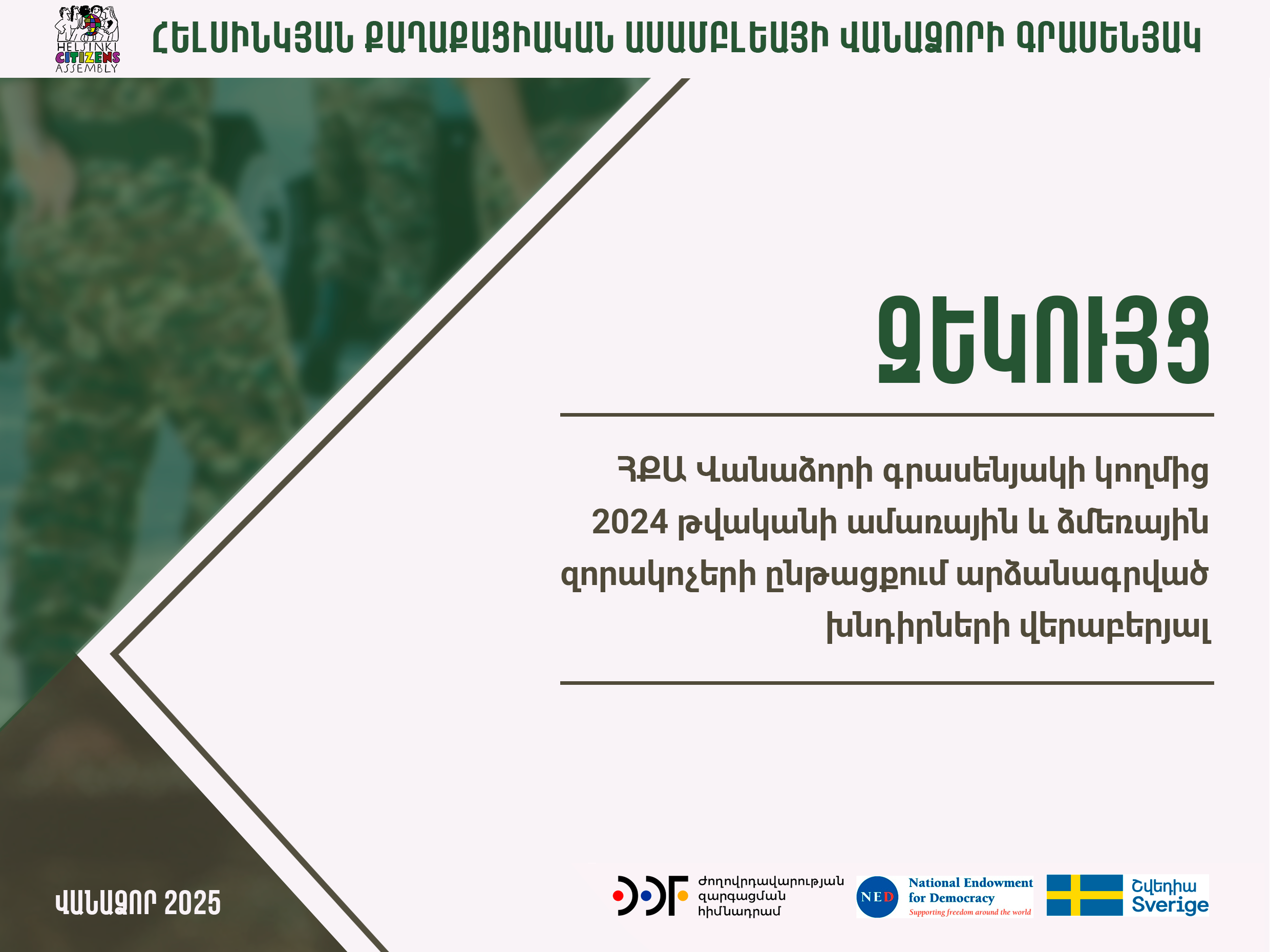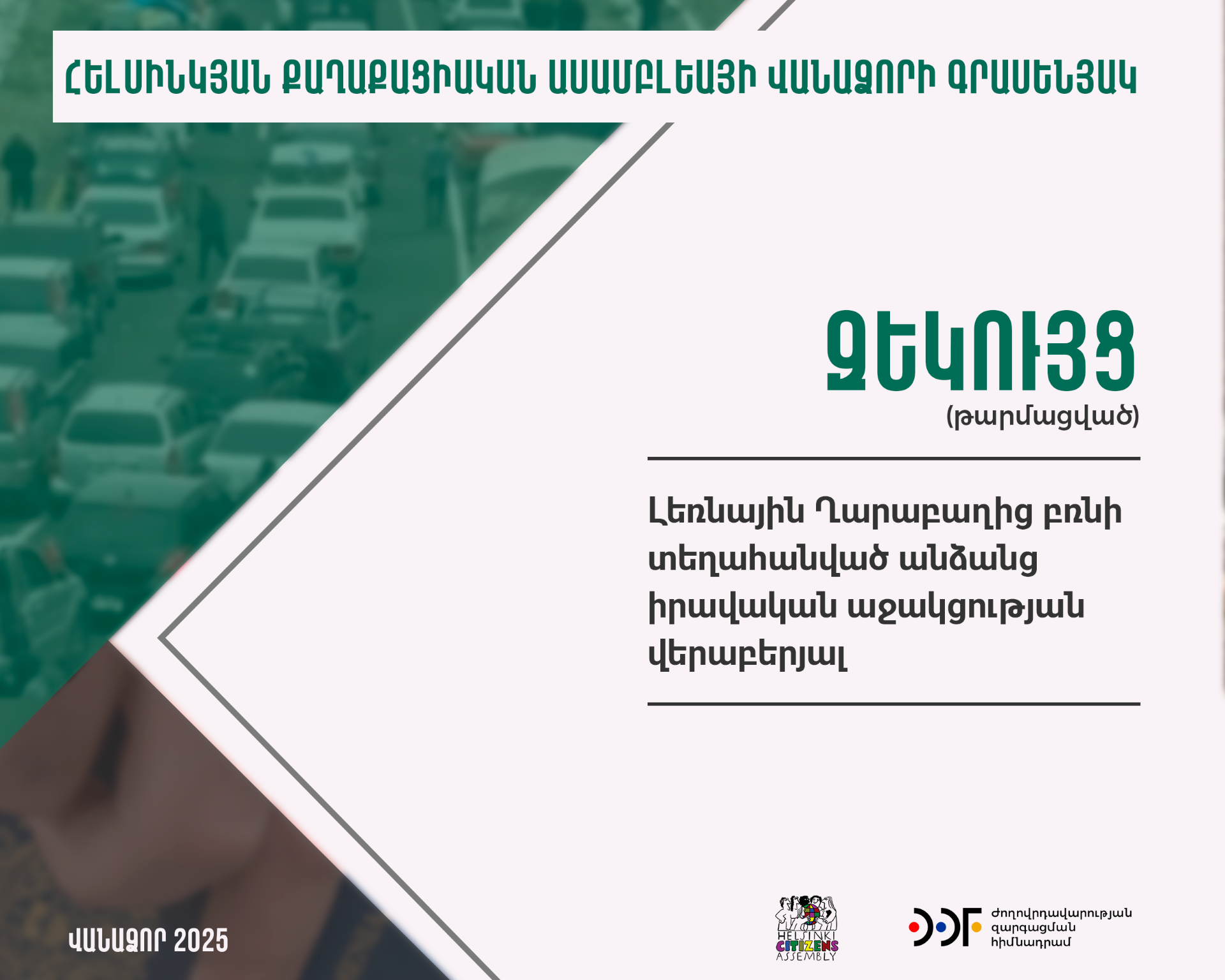Հոգեկան առողջության խնդիրներով բանակ զորակոչված և դասալքության համար 3 տարվա ազատազրկման դատապարտվելուց օրեր անց «Շուշի» ՔԿՀ-ում մահացած Հայկ Մովսիսյանի գործով գանգատը Մարդու իրավունքների եվրոպական դատարանը 2019թ. հունվարի 21-ին կոմունիկացրել է:
Գանգատը դեռևս 2015թ. հոկտեմբերի 2-ին Հելսինկյան քաղաքացիական ասամբլեայի Վանաձորի գրասենյակի աջակցությամբ ՄԻԵԴ էր ներկայացրել մահացածի մայրը:
Հայկ Մովսիսյանը հոգեկան առողջության խնդիրներով զինծառայությանը պիտանի է ճանաչվել և զորակոչվել 2011թ. օգոստոսին: Զինծառայության անցնելու հենց սկզբից նա դրսևորել է անհավասարակշիռ վարքագիծ, հայտարարել զորամասը ինքնակամ լքելու մասին, ինքնավնասումներ կատարել: Սակայն զինվորական ղեկավարությունը դրան պատշաճ ուշադրություն չի դարձրել, միջոցներ չի ձեռնարկել՝ պարզելու նրա այդ վարքագծի պատճառները: Ավելին՝ նախ ինքնավնասում կատարելու, ապա դասալքության համար նրա նկատմամբ քրեական գործ է հարուցվել:
Մինչ այդ՝ 2011թ. նոյեմբերի 3-ին ռազմաբժշկական հանձնաժողովի որոշմամբ նա արդեն իսկ զինծառայությանը ոչ պիտանի էր ճանաչվել:
2012թ. նոյեմբերի 20-ին ՀՀ քրեական օրենսգրքի 363-րդ հոդվածի 2-րդ մասով (ծառայության համար վստահված զենքով դասալքությունը) նա դատապարտվել է 3 տարվա ազատազրկման: Օրեր անց «Շուշի» ՔԿՀ-ի 8-րդ խցում, որտեղ 24քմ տարածքում նրա հետ պատիժը կրել է ևս 7 անձ, նրան մահացած են գտել: Նույն օրը՝ 2012թ. նոյեմբերի 28-ին, ինքնասպանության դեպքի առթիվ հարուցվել է քրեական գործ:
Նշենք, որ Հ. Մովսիսյանի մահվանից 5 ամիս անց՝ 2013թ. ապրիլի 11-ին, դատախազության բողոքարկմամբ վերաքննիչ դատարանը բեկանել է նրան ազատազրկման դատապարտելու վճիռը և արդարացրել: Ավելի ուշ Վճռաբեկը բեկանել է վերաքննիչի որոշումն ու ուժի մեջ թողել առաջին ատյանի դատարանի վճիռը:
2013թ. դեկտեմբերի 10-ին ինքնասպանության հասցնելու հանցակազմի բացակայության հիմքով 2012թ. նոյեմբերի 28-ին հարուցված քրեական գործը կարճվել է, բայց Հ. Մովսիսյանի մայրը դրա մասին իմացել է միայն տուժողի իրավահաջորդ ճանաչելու հարցով դատարան ներկայարած բողոքի քննության շրջանակում: Վարույթն իրականցնող մարմինը մերժել էր մահացածի մոր ներկայացուցիչներ, ՀՔԱ Վանաձորի գրասենյակի նախագահ Արթուր Սաքունցի ու Կազմակերպության իրավաբան Արայիկ Զալյանի միջնորդությունը՝ մորը տուժողի իրավահաջորդ ճանաչելու և քննությանը մասնակից դարձնելու մասին: Դրա վերաբերյալ բողոքները ևս դատարանը մերժել էր:
2014թ. հուլիսի 14-ին բողոքարկվել է նաև ինքնասպանության դեպքի առթիվ հարուցված քրեական գործը կարճելու՝ նախաքննության մարմնի որոշումը: Դատարանում բողոքի քննության շրջանակում Ա. Սաքունցն ու Ա. Զալյանը միջնորդել են՝ ստանալու գործի նյութերը: Չնայած դատարանը բավարարել է միջնորդությունը, բայց գործի նյութերը ամբողջությամբ չեն տրամադրվել, ՀՀ հատուկ քննչական ծառայությունն ընդհանրապես չի տրամադրել: Իսկ ամբողջությամբ տրամադրելու միջնորդությունը դատարանն արդեն մերժել է:
Ի վերջո 2014թ. սեպտեմբերի 9-ին գործի վարույթը կարճելու քննիչի որոշման դեմ Ա. Սաքունցի ու Ա. Զալյանի բողոքը դատարանը մերժել է: Վերաքննիչ բողոքի քննության շրջանակում ևս հնարավոր չի եղել ստանալ գործի ամբողջական նյութերը, ՀՀ հատուկ քննչական ծառայության ներկայացուցիչներն անգամ չեն ներկայացել գործի քննությանը, և կրկին բողոքը մերժվել է:
ՀՀ Վճռաբեկ դատարանն էլ 2015թ. մարտի 20-ին հրաժարվել է վարույթ ընդունել վերաքննիչի որոշման դեմ վճռաբեկ բողոքը՝ պատճառաբանելով, թե դատավարական սխալ առկա չէ:
Մարդու իրավունքների եվրոպական դատարան ներկայացրած գանգատում Հ. Մովսիսյանի մոր ներկայացուցիչը նշել է մարդու իրավունքների եվրոպական կոնվենցիայով երաշխավորված կյանքի իրավունքի և իրավական պաշտպանության արդյունավետ միջոցի իրավունքի խախտումներ:
Նա նշել է, որ պետությունը չի կատարել Հ. Մովսիսյանի կյանքի նկատմամբ վտանգի խախտումը կանխելու պարտականությունը: Պետության ներկայացուցիչները իմացել են նրա ունեցած առողջական խնդիրների մասին, բայց և այնպես գործուն միջոցներ չեն ձեռնարկել: Ավելին՝ ՔԿՀ-ում նա պահվել է սովորական խցում 7 այլ անձանց հետ միասին՝ առանց հատուկ հսկողության: Բացի դրանից՝ պետությունը պատշաճ քննություն չի իրականացրել ինքնասպանության դեպքի առթիվ, չի ապահովել տուժող կողմի մասնակցությունը գործի քննությանն ու գործի նյութերին հասանելիությունը: Որևէ պշտոնատար անձ պատասխանատվություն չի կրել նրա նկատմամբ անհիմն քրեական հետապնդման համար: Այսինքն՝ պետությունը արդյունավետ քննություն չի իրականացրել:
2019թ. հունվարի 25-ին ՀՔԱ Վանաձորի գրասենյակի փաստաբան Արայիկ Զալյանը ՄԻԵԴ-ից տեղեկացել է, որ գործը կոմունիացվել է: ՄԻԵԴ-ը հարցեր է ուղղել ՀՀ Կառավարությանը՝ կյանքի իրավունքի և իրավական պաշտպանության արդյունավետ միջոցի իրավունքի իրացման վերաբերյալ և ՀՀ Կառավարությունից պահանջել գործին առնչվող մի շարք փաստաթղթեր, որոնց հիման վրա կայացվել է ինքնասպանության դեպքի առթիվ հարուցված քրեական գործը կարճելու՝ 2013թ. դեկտեմբերի 10-ի որոշումը:
Մինչ այդ ՄԻԵԴ-ն առաջարկում է դատական փուլին անցնելուց առաջ դիտարկել հաշտությամբ կարգավորման հնարավորությունը:
ՄԻԵԴ ներկայացուցիչը նշել է, որ Դատարանն ընդունել է նոր պրակտիկա, որով վարույթի 1-ին փուլում կողմերին առաջարկում են հաշտության գալ, և միայն դրա անարդյունավետության դեպքում սկսվում է դատական փուլը:
Հաշտության հնարավորության մասին որոշում կայացնելու համար կողմերին տրվել է ժամանակ մինչև 2019թ. ապրիլի 23-ը: Հաշտության անհնարինության դեպքում ՀՀ Կառավարությունը 12-շաբաթյա ժամկետում կներկայացնի գործի վերաբերյալ իր դիտարկումները:
On January 21, 2019, ECHR communicated the complaint pertaining to the case of Hayk Movsisyan, who was conscripted with mental health problems and sentenced to imprisonment of three years for desertion, a few days after which he passed away in “Shushi” penitentiary institution.
Back on October 2, 2015, the complaint was presented to the European Court of Human Rights by the dead serviceman’s mother with the support of Helsinki Citizens’ Assembly Vanadzor.
Hayk Movsisyan was recognized fit for military service with mental health problems and conscripted in August 2011. At the very start of his military service, he manifested an unbalanced behavior, announced about voluntarily leaving the military unit and self-harmed. Nevertheless, military leaders did not pay sufficient attention to this and took no measure to find out the reasons for his behavior. Moreover, a criminal case was initiated against him for making a self-harm and later for desertion.
Before that, on November 3, 2011, according to the decision of military medical commission, he had already been recognized unfit for military service.
On November 20, 2012, he was sentenced to imprisonment of 3 years under Article 363 part 2 (desertion with the weapon trusted for the service) of the RA Criminal Code. A few days later, he was found dead in “Shushi” penitentiary institution cell no. 8, where 7 more persons served their sentences in 24 square meters area. On the same day, on November 28, 2012, a criminal case was initiated on suicide.
It should be mentioned that 5 months after H. Movsisyan’s death, on April 11, 2013, based on the appeal of Prosecutor’s Office, Appeal Court overturned the judgment to imprison him and acquitted. Later, the Court of Cassation overturned the decision of the Court of Appeal and left the judgment of the court of first instance in force.
On December 10, 2013, based on the absence of delict in inciting a suicide, the criminal case initiated on November 28, 2012 was dismissed. However, H. Movsisyan’s mother learnt about it only within the framework of the examination of the complaint made to the court for being recognized as the aggrieved person’s successor. The body conducting the proceedings rejected the petition of the representatives of the dead serviceman’s mother – HCA Vanadzor chairman Artur Sakunts and Organization’s lawyer Arayik Zalyan- to recognize his mother as the aggrieved person’s successor and involve her in the investigation. The Court also rejected complaints pertaining to that.
On July 14, 2014, the preliminary investigation body’s decision on dismissing the criminal case initiated on suicide was appealed. Within the framework of the examination of the appeal, A. Sakunts and A. Zalyan petitioned to get the materials of the case. Though the Court upheld the petition, the materials of the case were not fully provided, moreover, RA Special Investigation Service did not provide any materials at all. The Court rejected the petition to provide all the materials.
Ultimately, on September 9, 2014, the Court rejected A. Sakunts and A. Zalyan’s complaint against the investigator’s decision to dismiss the proceedings of the case. Within the framework of the examination of the appeal, it was impossible to get all the materials of the case. Furthermore, even the RA Special Investigation Service representatives did not appear at the examination of the case and the complaint was again rejected.
On March 20, 2015, RA Court of Cassation rejected to accept proceedings on the cassation appeal against the decision of the Court of Appeal, reasoning that there were no judicial mistakes.
In the complaint presented to the European Court of Human Rights, the representative of H. Movsisyan’s mother underscored the violations of the right to life and effective remedy guaranteed under the European Convention of Human Rights.
He mentioned that the state did not comply with its obligation pertaining to the prevention of threats to life. State representatives were aware of his health problems and still, did not take effective measures. Moreover, in the penitentiary institution he was held together with 7 persons in a common cell without special control. Besides, the state did not conduct a proper investigation into the suicide, did not ensure the participation of the aggrieved in the investigation of the case and access to the materials of the case. No official was brought to liability for his illegal criminal prosecution. That is to say, the state did not conduct an effective investigation.
On January 25, 2019, HCA Vanadzor lawyer Arayik Zalyan was informed by the European Court of Human Rights that the case was communicated. ECHR addressed questions to the RA Government pertaining to the enjoyment of the right to life and the right to effective remedy and demanded that the RA Government provide a number of documents related to the case upon which the decision dated December 10, 2013, on dismissing the criminal case initiated on the case of the suicide was taken.
Before that, ECHR offered to explore the possibilities of friendly settlement before the contentious stage.
ECHR representative underscored that the Court adopted a new practice, according to which, during the first phase of the proceedings, the parties are offered to explore the friendly settlement possibility and should that case be unsuccessful, it is followed by the contentious phase.
It has accordingly been decided that the parties should be given until 23 April 2019 to discuss the terms of a settlement. If the settlement be unsuccessful, the RA Government will present its observations pertaining to the case within 12-week time-limit.
[:]




